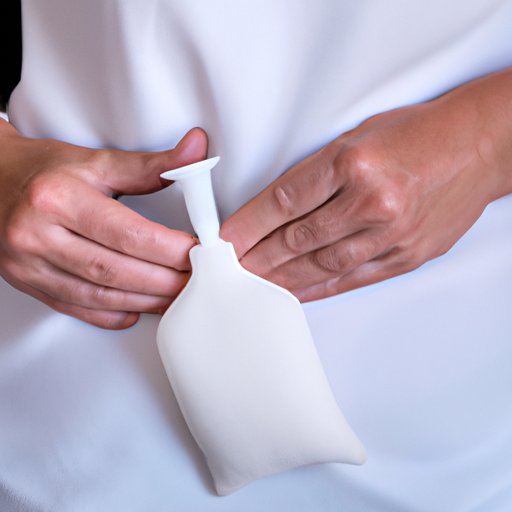
Treating Bleeding Hemorrhoids: How to Find Relief and Maintain Good Health
Are you experiencing discomfort or pain during bowel movements? Do you notice bright red blood on the toilet paper or in the toilet bowl? It may be a sign of bleeding hemorrhoids.
Hemorrhoids are common, affecting millions of people worldwide. While not usually serious, they can cause significant discomfort and impact your quality of life. Fortunately, there are ways to treat bleeding hemorrhoids and prevent future occurrences. In this article, we will cover the causes of bleeding hemorrhoids, preventative measures, and a range of treatment options you can try at home or under a doctor’s supervision.
Common Causes and Prevention of Bleeding Hemorrhoids
Hemorrhoids are swollen veins in the rectum or anus that cause discomfort, itching, and bleeding. The most common cause is straining during bowel movements due to constipation or chronic diarrhea. Prolonged sitting or standing can also put pressure on the veins and cause them to swell.
To prevent bleeding hemorrhoids, try to establish a balanced diet rich in fiber, avoid straining when using the bathroom, drink plenty of water, and take regular breaks when sitting for long periods.
Maintaining Good Hygiene
When dealing with hemorrhoids, it’s essential to maintain good hygiene to avoid further discomfort or infection. Avoid using harsh soaps or wipes, stick to warm baths, and apply petroleum jelly or a similar product after bathing to soothe the area.
Over-the-Counter Treatments
Witch hazel wipes, sitz baths, and medication such as topical creams and pain relievers are available over-the-counter to alleviate discomfort and reduce swelling. Follow the instructions provided on the packaging and use them consistently to get the best results.
Avoiding Pressure on the Anus
Until hemorrhoids heal, it’s best to avoid activities that can worsen them, like heavy lifting or excessive physical activity. Try gentle stretching exercises to improve blood flow and reduce discomfort.
Dietary Changes
Increasing fiber intake through fruits, vegetables, and whole-grain products can prevent future flare-ups of bleeding hemorrhoids. Drinking water and hydrating beverages like herbal tea helps soften stools and reduce straining.
Seeking Medical Attention
If symptoms persist or become severe, seek medical attention. Doctor-prescribed treatments include banding, which involves wrapping a small rubber band tightly around the hemorrhoid to stop blood flow, or surgery in extreme cases.
Herbal Remedies
Herbal remedies like aloe vera or chamomile are known for their soothing properties when applied topically to the affected areas. Some also use essential oils or sitz baths infused with these ingredients. However, be aware of any potential side effects or allergic reactions before trying herbal remedies and consult a healthcare professional first.
Conclusion
Bleeding hemorrhoids are an uncomfortable but manageable condition. To prevent future flare-ups and help reduce symptoms, maintain good hygiene, incorporate dietary changes, and try over-the-counter treatments or herbal remedies. If symptoms persist, seek medical attention and explore doctor-prescribed treatments or procedures. Act now to find relief and maintain good health.




